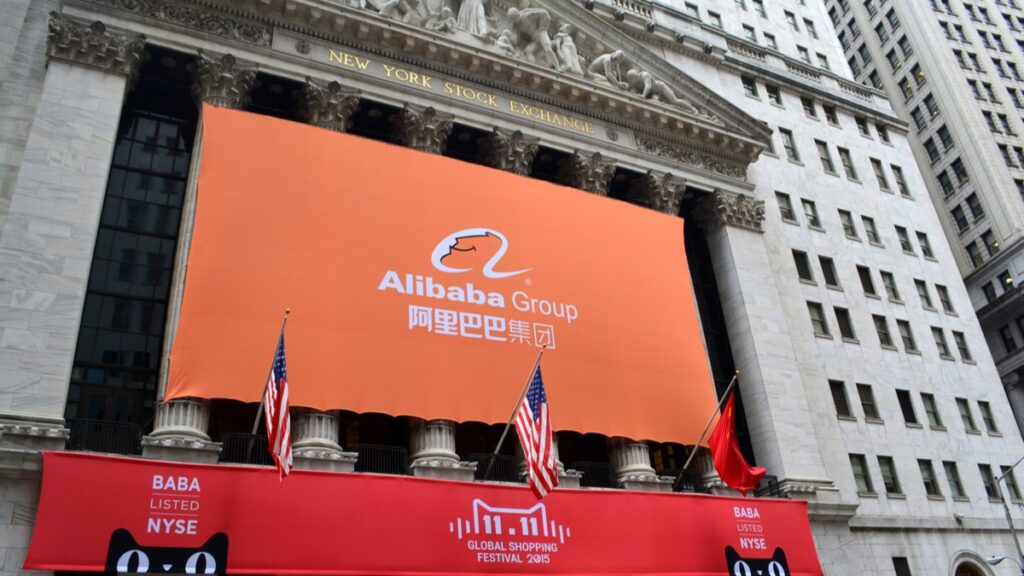Alibaba shares drop as rivals’ rise, warns from consumer spree shift

E-commerce giant Alibaba Group’s shares plummeted on Thursday in both New York and Hong Kong listings by more than 10 percent, following the giant’s drastic cut in sales, led by slow growth in China’s consumer spending.
Following the quarterly results, Alibaba revealed expectations of reaching a 20 to 30 percent rise in sales in the upcoming year, contrasted with the previously announced 30 percent prediction in growth.
While the Chinese e-commerce giant had previously taken the lead in the market, the company is currently encountering severe competition from rivals, Pinduoduo and JD.com, and others. China’s e-commerce businesses are competing to steal market shares to take the lead in the race for market capitalization.
Alibaba’s chief financial officer (CFO), Maggie Wu, stated that rivals were “increasing investment to acquire users and show a high level of spending.”
These competitors have been indulging in the ambitious behavior of distancing merchants away from Alibaba’s Taobao retail business with a lower set-up, transactions, and advertising expenses.
“Competition in China’s e-commerce is reflected in Alibaba and JD.com’s declining profit margins – a reflection of the increasingly hard-fought battle for shoppers’ wallets,” tech analysts at research firm Agency China, Michael Norris, said in a statement.
From its part, JD.com Inc.’s quarterly growth varied from that of Alibaba, as it reported on Thursday quarterly outcomes sending shares value up by 6 percent.
The supply-based company is expecting a 20 to 23 percent rise in expected revenue until March, marking the least prolonged growth for the firm since its stock market debut back in 2014.
Due to the global overtake of the COVID-19 pandemic, China’s consumers’ cut down on spending, combined with supply shortage, resulted in draggier market growth for the country’s economy in its third quarter (Q3).
“These economic headwinds, coupled by intensifying market competition also affected our core commerce business in China,” Daniel Zhang, Alibaba CEO elaborated on an earning’s call. He further added that one of the leading attributes to the fluctuation is driven by the decrease in demand for garment and general merchandise.
Experts highlighted that despite the retail titan’s damaging hit on its growth rate in commodities, such as fashion and accessories, competitors sustained higher growth in sales than Alibaba.
“We see intensified competition further eating into Alibaba’s market share and widening the difference in revenue growth of Alibaba vs. peers,” Daiwa Capital Markets analysts said in a note.
The Hangzhou-based titan marked its most modest increase in revenue in the past six quarters, rising by 29 percent to reach $31.4 billion.
With the incorporation of Thursday’s shortfalls, the Group’s stock dropped a colossal 38 percent this year alone, leaving the company with a valuation of almost $390 billion, with Hong Kong shares dropping by 10.6 percent on Friday, according to Reuters.
Alibaba has been under attack from Beijing for its antitrust and monopolizing conduct towards its peers. Regulatory watchdogs unleashed a scrutinizing regulatory wave on the giant, resulting in a $2.8 billion fine in Landmark Antitrust Case.
